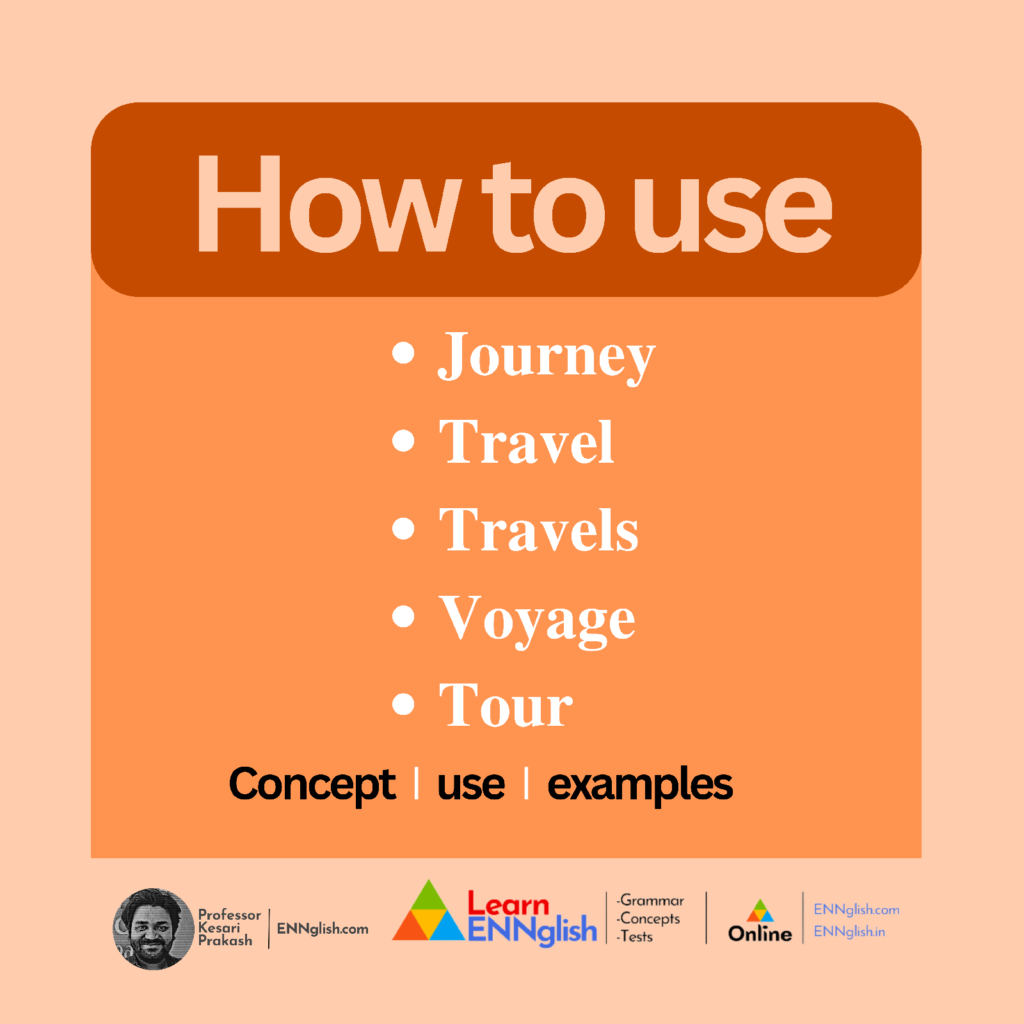
Journey, Trip, Travel, Travels, Voyage, Tour: Understanding the Differences
In English, the words journey, trip, travel, travels, voyage, and tour are often used interchangeably, but each has a distinct meaning. Let’s explore their differences and proper usage.
Journey
A journey refers to traveling to a place, especially one that is far away, or a trip you make regularly. It implies a more prolonged or significant travel experience.
- ‘You can’t go on a journey to Alaska without making careful preparations.’
- ‘The journey to work takes about half an hour by train.’
- ‘If the roads are flooded, we’ll have to make the journey by boat.’
Trip
A trip is a short visit to a place and back, often used for temporary visits or short-term travel.
- ‘How was your trip to Mumbai?’
- ‘She’s away on a business trip and won’t be back until Monday.’
Travel
Travel (uncountable) refers to the general activity of moving from place to place, especially over long distances. It can be used to describe both the act of moving and the industry of transportation.
- ‘She enjoys foreign travel immensely.’
- ‘New computer technology has made air travel considerably safer.’
Travelling (the -ing form) is often used after verbs or prepositions:
- ‘I hate travelling on my own.’
- ‘The job involves a certain amount of travelling.’ (NOT ‘of travel’)
In compound nouns, we use travel:
- ‘foreign travel’, ‘air travel’ (NOT ‘air travelling’).
Travels
Travels (plural) refers to the journeys someone makes, especially when describing long visits to one or more foreign countries and the experiences had along the way.
- ‘I accompanied the South African team throughout their travels in Australia and New Zealand.’
- ‘We filmed a lot of wild animals on our travels.’
Voyage
Voyage is a long journey, typically taken by boat or ship.
- ‘Heavy seas and strong winds made the voyage from Europe very unpleasant.’
Tour
A tour refers to a journey made for pleasure, during which you visit different places, often within a country or region. It is often planned and organized.
- ‘For our next holiday, we’re going on a ten-day tour of the Lake District.’
Sometimes, a tour refers to a series of visits made by a politician, entertainer, or other public figures:
- ‘The Prime Minister will be returning on Monday from a three-week tour of Southeast Asia.’
A tour can also refer to a short trip around a city, museum, or factory.
- ‘After lunch, we were taken on a guided tour of York Minster.’
